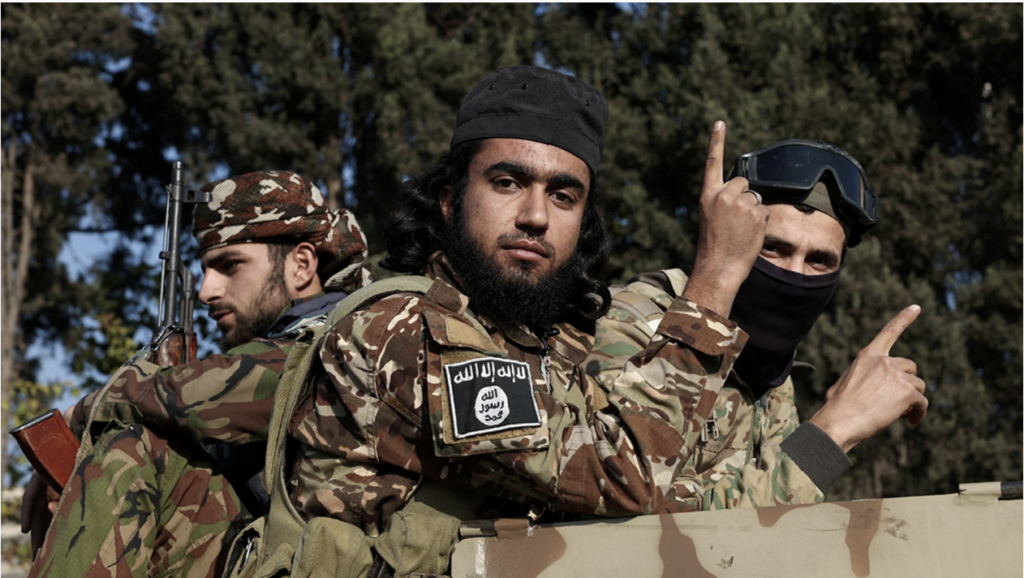
As Syria emerges from a half-century of the brutal Assad regime, they face political and economic uncertainty as they attempt to form a new government. Hay’at Tahrir al-Sham (HTS), the rebel group which led the overthrow of the regime, is expected to form a government signaling that they will respect minority groups and adopt liberal principles. A primary challenge to their legitimacy stems from the remaining crippling U.S sanctions levied on the Assad regime, which prevent foreign investment and keep the economy stagnant. In hopes of fostering stability in the new Syria, the U.S should remove sanctions to allow the country to stabilize economically.
The effects of the sanctions the U.S has on Syria are extensive. The economy shrank throughout the Syrian Civil War, with more than 90% of Syrians living below the poverty line in 2022. U.S-led sanctions restrict business with Syrian companies, block investment, and prevent economic growth. The Biden administration announced last month that they are easing some restrictions allowing for energy transactions and maintaining basic needs. However, to allow a full rebuild of infrastructure and grow the economy, the U.S must remove all sanctions and allow Syria to prosper.
The designation of HTS as a foreign terrorist organization (FTO) is counterproductive and not entirely accurate. It stems from HTS’s ties to al Qaeda starting in 2011, but since its dissociation in 2014, HTS territory in northwest Syria provided freedoms to minorities and women. The U.S lifted the bounty on HTS leader, Muhammad Al-Jalani, and Western governments have been in contact attempting to establish relations with the new government. The FTO designation punishes groups who cooperate with the Syrian state, which deters foreign companies from investing or communicating with the new regime. This designation does not accurately reflect HTS’ national security threat, as the U.S shared ISIS-related intelligence with HTS in January, indicating the U.S views ISIS as a greater national security threat. This designation hinders the Syrian government’s ability to function normally. If the U.S hopes to see a functioning state in Syria, they should treat it as a functioning state until given a reason not to. Waiting to remove the FTO designation could become a self-fulfilling prophecy where HTS fails to function as a state because they are not given the opportunity to do so.
The Biden Administration was hesitant to remove sanctions due to HTS’s distinction as a terrorist organization. They chose to condition sanctions relief on improvements in minority and women’s rights, and encourage them to adopt Western rule of law instead of strict Islamic law. Under their logic, if the new Syrian government respects minority rights and adheres to American requisites, they will cut sanctions. While this approach seems logical, Syria does not have the privilege of forming a legitimate government without full economic power. The Assad regime relied heavily on the Captagon trade due to their inability to access Western markets. If sanctions stay in place, the new government will struggle to create a functioning economy before fully fleshing out its policies. The economy is the number one priority for an incoming government after 15 years of civil war, and restricting its ability to provide for its citizens can have detrimental consequences in the long term.
The approach taken by Biden, and likely Trump, ignores the fact that sanctions can easily be reinstated if the U.S decides. If Syria proves to follow strict interpretations of Islamic law and repress the rights of minorities and women as many fear, then the U.S can and should reapply the sanctions. The effect is the same: if the U.S seeks to sanction Syria there will be sanctions. But retaining outdated sanctions deprives Syria the best opportunity to rebuild its society and reinvigorate the economy. The U.S should reward behavior that helps its interests, and removing Assad from power is a humanitarian and geostrategic win. Even if the new government does not fully align with the American vision of Syria, it certainly is preferable to the brutal Assad government responsible for the deaths of thousands of Syrian civilians through the use of chemical weapons. The current sanctions are outdated and misfitted, meant for a past regime that is no longer in power. In the current geopolitical competition, the collapse of Assad weakened Iran and Russia’s position in the region. Iran is the U.S’ main regional adversary, and HTS directly eliminated a crucial ally of Tehran. As a consequence, Iran lost its access to resupply routes to Hezbollah in Lebanon, a sympathetic neighbor. Instead of waiting to see if Syria needs sanction relief, the Trump administration should remove sanctions to reflect the facts on the ground.
While eliminating sanctions seems to be an unrealistic approach under President Donald Trump, it aligns with his foreign policy vision. The decimation of Assad will likely empower Turkey, who enjoys closer relations to HTS. President Trump speaks positively about Turkish President Recep Tayyip Erdoğan, who stands to gain significantly from the change of power in Damascus. A strengthened and competent state that is no longer beholden to Iran aligns with his regional vision to decimate Iran. By lifting sanctions and allowing economic growth, Trump can be the savior of Syria and be credited with a miraculous recovery. And if the situation deteriorates forcing new sanctions, Trump can be the tough president who forces them into compliance. In all, the lifting of sanctions and the opportunity to stabilize Syria benefits Trump’s long-term vision for the region while maintaining the opportunity to show strength.
After a brutal 15 years, Syrians are not fully out of the dark and their main handicap is U.S sanctions. The debilitating effect of these sanctions will delay the recovery process and risk backward progress. President Trump should drop sanctions against Syria in order to more accurately reflect the situation and provide Syria the opportunity to thrive peacefully.
Image source: Council on Foreign Relations
